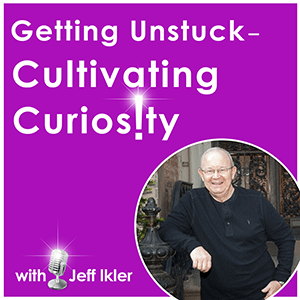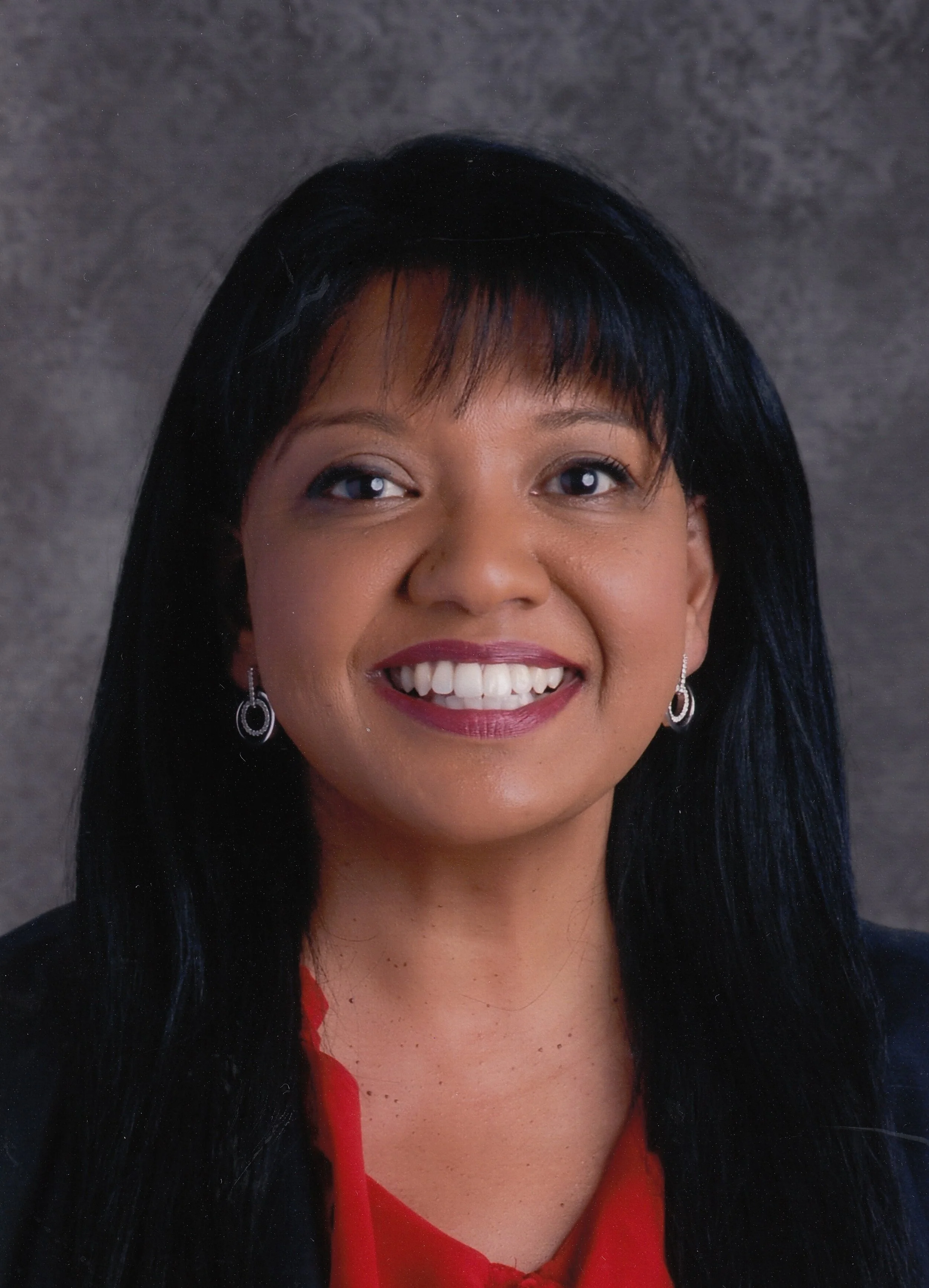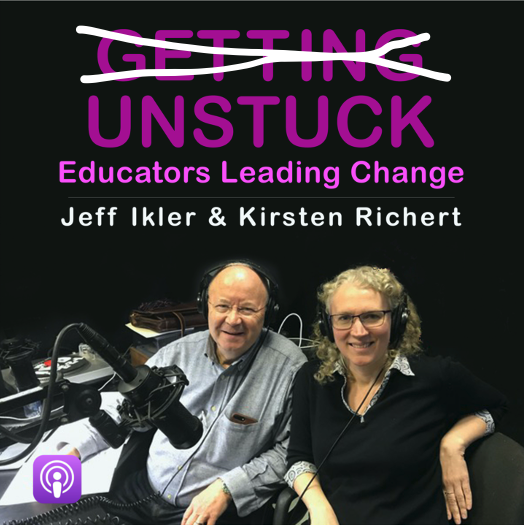If students are in a state of high stress or trauma, the part of the brain that facilitates learning is inaccessible. Thus, student academic achievement rests squarely on the shoulders of student wellness. Neuroscience researcher, Melissa Hughes, Ph.D., explains.
Read MoreOne of the goals of our series is to raise awareness and the level of discourse around student trauma and mental health in general. Turning up the volume here is needed because – one – most educators are still largely uninformed about aspects of mental health and – two – that causes us not to talk about depression, suicide, abuse and trauma in general. And if we’re not bringing these subjects out into the open, kids keep all those emotions bottled up inside of them. Dr. Glenn Albright and Kim Weiland from Kognito, a firm that develops avatar-based simulations to help develop trauma-informed educators, share their insights.
Read MorePeriodically on Getting Unstuck, we welcome a change maker to tell their story of personal transformation: how a specific event or catalyst propelled them into a different role or way of thinking from where they once were. In this episode, we hear from Suzanne DeMallie who went from being a wife and the parent of three children to someone who led a four-year crusade to bring about a specific educational change.
Read MoreSome students from low-income communities – often kids of color – may lack aspirations for a post high-school future because they feel it’s simply unrealistic to think of life outside of their current situation. But many students from low-income communities do have aspirations, often at the same rate as their counterparts from wealthier communities, yet they are sidelines because of real or perceived societal barriers blocking their way. The organization OneGoal helps them find a pathway. Priya, Linson, OneGoal’s Executive Director in its Chicago chapter explains.
Read MoreAs today’s guest observed, “Many kids fall through the cracks somewhere.” Maybe they’ve experienced trauma outside of school, and as a result, they don’t fit in inside of school. But veteran history teacher, Jeff Rivero, knows how to reach them and help them uncover their passion. How? He treats them like the natural resources they are.
Read MoreWe’re big advocates for educational reform especially at the high school level given the complex world our graduates will face. To support that effort, we’ve brought the voices of school leaders, classroom teachers, and educational thought-leaders to the microphone to describe various pathways for improved student outcomes. But we had never heard of a reform plan generated by this stakeholder group. Assistant principal Sheri Nelson and teacher Alex Campbell of Elizabethton H.S. explain.
Read MoreThis week I talked with Janani Pathy, Principal of the Bill Hogarth Secondary School in Markham, Ontario Canada. Janani is one of those “unstuck” leaders that we profiled recently in our “unstuck” series. “Unstuck” leaders tend to demonstrate a few key behaviors, one being, they're highly adaptable and innovative. As a result, they don't tend to get stuck very often. That observation led to a discussion of a process for overcoming obstacles that Ryan Holiday outlines in his book, The Obstacle is the Way.
Read MoreOver the summer, we’ve been running a series called “Unstuck,” where we’ve profiled school leaders who are not just getting unstuck, they’re already unstuck. A number of behaviors define them: they're adaptable, flexible and innovative; community minded; focused on life skill development and the whole child; and finally, they believe there is an imperative to develop student leaders. Today's guest, principal Janani Pathy, epitomizes the unstuck leader.
Read MoreThis week I talked with Peter McWain, the Director of Curriculum and Instruction for the Sante Fe Public Schools. We reviewed a number of positive instructional outcomes that emerged from educating under COVID. Unintended consequences occur all the time from change. How can change agents attempt to avoid fulfilling the law of unintended consequences?
Read MoreWhat is the goal of U.S. education in an ever-changing world? Here, the Director of Curriclum and Instruction for the Santa Fe Public Schools, Peter McWain, discusses how and why it’s challenging to answer that question. This episode also includes a brief update from our original conversation.
Read MoreThis week I talked with Dr. Lindsay Lyons, an educational coach who helps teachers design curricula that puts student voice front and center in the classroom learning and build capacity for shared leadership. From there we dove into the “Rosenthal” effect that speaks to the impact of having high — or low — expectations for those we teach.
Read MoreIf you asked people to identify the qualities they want to see in high school graduates, most people would respond with points such as Independent thinking, Collaborative, Problem solving, Emotionally intelligence and Adaptability. These are also the qualities that we want to see in leaders, right? But what kind of opportunities do we give kids to develop these qualities? And what kind of barriers stand in the way? Leadership coach, Dr. Lindsay Lyons, explains.
Read MoreAre we destined for one purpose in life, or does the Universe really desire to lay multiple pathways at our feet? Are we meant to specialists, focusing on a narrow band of study or work, or is our DNA really geared to make us generalists? Erin Mote, co-founder of the Brooklyn Laboratory Charter School in Brooklyn NY knows what she wants for her “scholars.” What about the rest of us? Join the exploration.
Read MoreEducation shouldn’t just be about the content and skills we need to teach kids. It should also be about, well, let’s let Brooklyn Lab Charter School founder, Erin Mote, explain.
Read MoreIf you’re curious why high achievers are particularly susceptible to the IMPOSTER SYNDROME, and why humans are wired for negative thinking as reflected in the IMPOSTER SYNDROME, and why social media and ghosting have contributed to the growing cases of IMPOSTER SYNDROME, and how you can begin to send your own critic to a time out, then give this edition of our Getting Unstuck mini-podcast a listen, look and read.
Read MoreWhile he’s not technically a leader inside a school anymore, today’s guest, Danny Bauer, epitomizes our “unstuck” philosophy and has turned developing school leadership talent into an art – the art of creating “Ruckus Makers.”
Read MoreDr. Daisy Morales, the new Superintendent of the Live Oak School District in Santa Cruz, CA. Daisy’s big concern coming into the district on Day 1 wasn’t to rectify the “lost learning” associated with managing classrooms in a virtual or hybrid environment. What was it then?
Read MoreWhat does it take to focus on a priority instead of priorities? Courage? Experience? Listening? Superintendent Dr. Daisy Morales shares her insights.
Read MoreBusinesses are increasingly looking for leaders who are curious, innovative problem solvers – willing to break the status quo to deliver desired outcomes. How, then, do we nurture those behaviors in today’s students?
Read MoreHow do you help kids develop 21st century skills such as creativity, resilience and empathy? Principals of “Project Invent,” Connie Liu and Jordan Mareno explain.
Read More
 Curiosity sits at the intersection of creativity, effective human interactions, problem-solving and purposeful change. Unfortunately, the pace of life — at home, work, and school — often sidetracks our natural curiosity. So, listen as we look at the familiar from a different angle or something new as a possibility to consider.
Curiosity sits at the intersection of creativity, effective human interactions, problem-solving and purposeful change. Unfortunately, the pace of life — at home, work, and school — often sidetracks our natural curiosity. So, listen as we look at the familiar from a different angle or something new as a possibility to consider.












